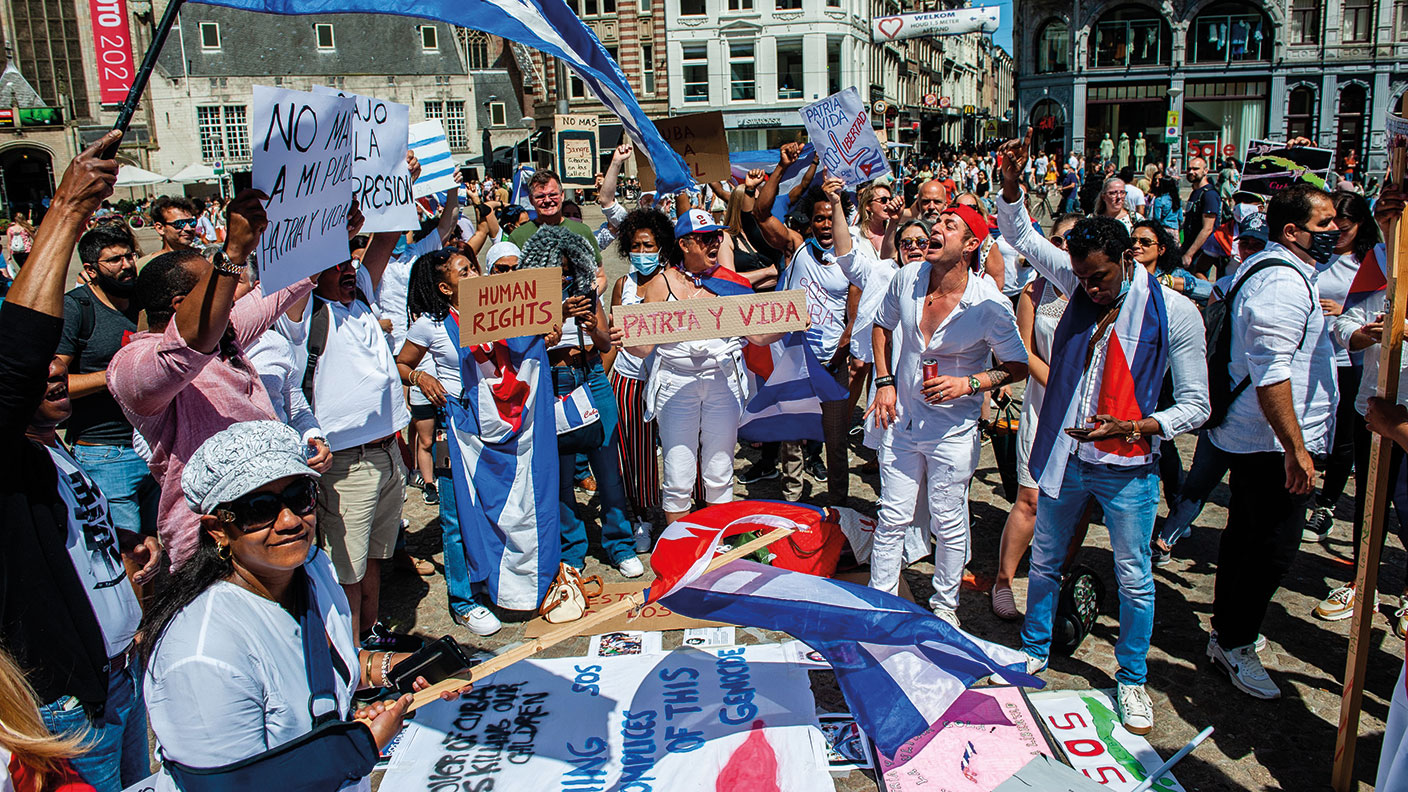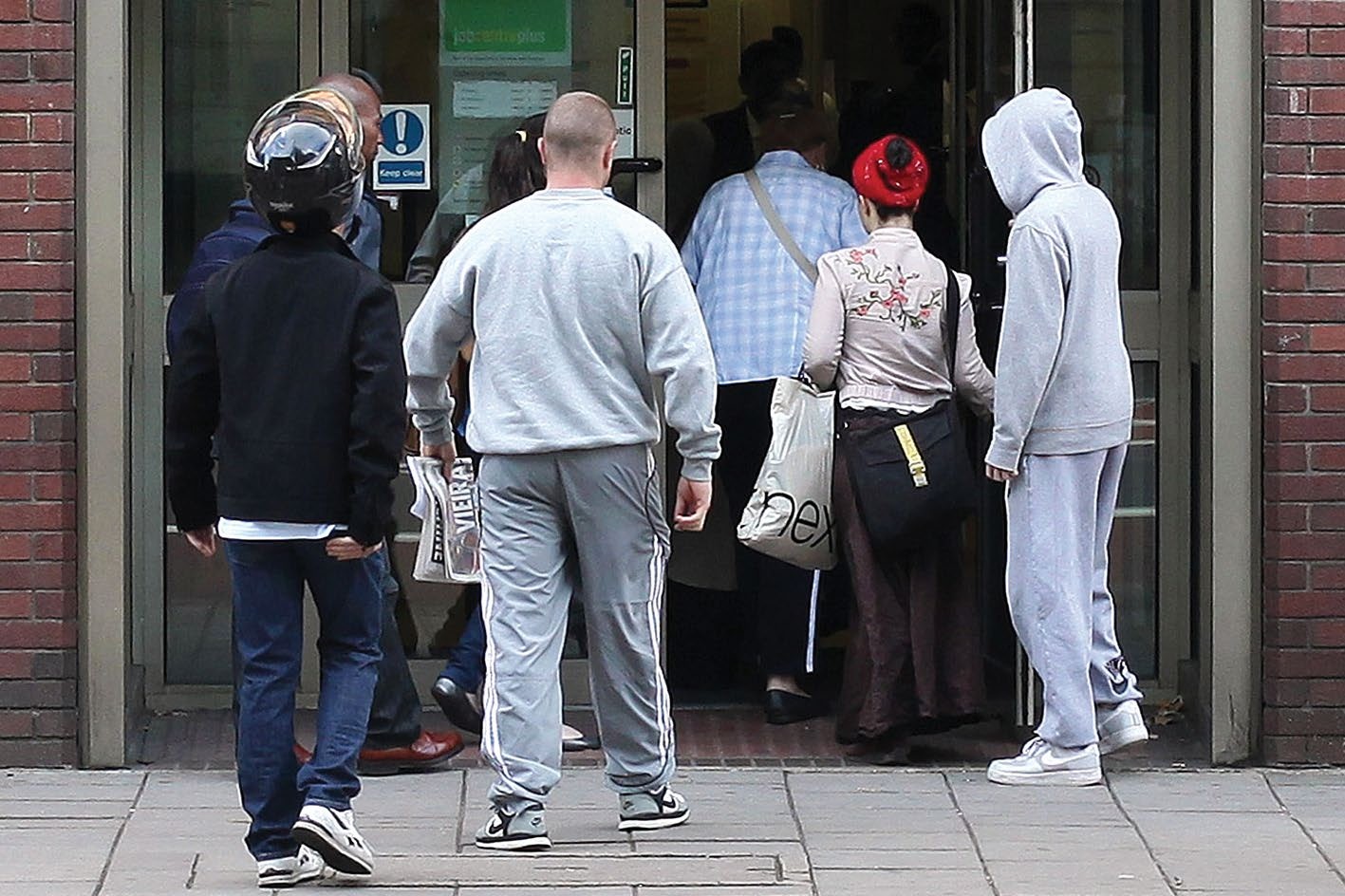A new revolution in Cuba?
The biggest protests in decades have rocked the one-party communist state. But is change for the better really on the cards?

Get the latest financial news, insights and expert analysis from our award-winning MoneyWeek team, to help you understand what really matters when it comes to your finances.
You are now subscribed
Your newsletter sign-up was successful
Want to add more newsletters?
What’s happened?
Cuba is in the grip of its worst economic crisis since the early 1990s and frustrations are starting to boil over. On 10 July, a spontaneous protest in the city of San Antonio de los Baños – triggered by the latest wave of power cuts – rapidly spread to around 50 other towns and cities, fuelled by social media. Within hours, thousands were on the streets in a massive popular show of anger at food shortages, runaway inflation and the government’s handling of the pandemic. They were the biggest protests for decades in a one-party communist state where unauthorised protest is a crime. And they had an explicitly political message: down with the communist regime. For now the protests have been contained: security forces (as well as pro-government thugs) were unleashed and hundreds arrested. But most analysts expect further ructions.
Why has it happened now?
A perfect storm of economic factors combined with increased digital connectivity. Cuba has struggled to cope with the toughest US economic sanctions in decades, imposed by the Trump administration starting in 2017. After the detente of the Obama years, the Trump administration strengthened the decades-old trade embargo and targeted Cuba’s sources of currency. It also imposed sanctions on tanker companies that delivered petroleum to Cuba from Venezuela and cut back on the commercial flights from the US to the island. Then, in January 2021, just before Trump left office, the US returned Cuba to its list of “state sponsors of terrorism” (for its support of Venezuela’s socialist regime).
What was the effect?
It further crippled international trade – even in food and medicine (exempted from the US embargo). That’s been disastrous for a country that imports 70% of its food, and whose strong public health system is a major source of legitimacy for the state. Just as important, Covid-19 has hit the country hard, with the collapse of tourism (accounting for at least 10% of the economy and a far greater proportion of hard currency earnings). And the government’s painful currency reform in January – sharply devaluing the peso, and scrapping the dual currency system – has seen prices soar, with some economists estimating annual inflation at 500%.
Try 6 free issues of MoneyWeek today
Get unparalleled financial insight, analysis and expert opinion you can profit from.

Sign up to Money Morning
Don't miss the latest investment and personal finances news, market analysis, plus money-saving tips with our free twice-daily newsletter
Don't miss the latest investment and personal finances news, market analysis, plus money-saving tips with our free twice-daily newsletter
What sectors have been hit?
Covid-19 didn’t just put a stop to tourism. It meant that remittances sent by expatriate Cubans – a mainstay of the economy which had already plunged due to US restrictions on remittance firms under Trump – began to dry up as the pandemic led to huge job losses in the US. And agriculture has been hit, too, with the shortage of foreign currency and the US embargo affecting the purchase of fuel and other agricultural inputs. In late April, Cuba’s state sugar monopoly reported a harvest this year of just 68% of the planned 1.2 million tonnes. That makes this year’s sugar harvest the smallest since 1908, according to Reuters.
Was the economy ever a success?
No, though some periods (the mid-2000s) have been happier than others (the early 1990s). Cuba’s GDP is in the order of $93bn, or around $8,200 a year per head. Among its neighbours, that makes it about as rich as the Dominican Republic, somewhat better off than Jamaica, and much better off than Haiti. By the standards of the region, then, it is not a total basket case or outlier. But ever since the 1959 revolution, the country has been unable to pay its way and generate appropriate, sustainable growth without staggering levels of aid and subsidies from foreign allies. During the Cold War, Cuba’s status as a communist outpost 100 miles from the US coast meant that Moscow invested heavily in it.
How heavily?
Between 1960 and 1990, the Soviets gave Cuba $65bn – three times the total amount of aid that Washington’s Alliance for Progress gave the whole of Latin America. The collapse of the USSR in 1990-1991 led directly to economic collapse in Cuba (a time known as the “special period”). Later, Cuba’s great champion was the Chávez government in Venezuela. At its peak in 2012, Venezuelan aid, subsidies and investment amounted to $14 bn, close to 12% of GDP at that time. But that support faded as Venezuela’s economy collapsed and oil revenues dried up. This all led to today’s crisis, with widespread food and medicine shortages, and frequent power outages.
Any glimmers of hope?
First, there is the potential for tourism. The sector boomed from 2007 to 2017, with visitors to the island doubling. Second, exports of medical services, though this has been compromised, for now, by Venezuela’s collapse. And third, the tentative, modest market reforms introduced under Raúl Castro from 2011 onwards. Between 2011 and 2017, around one million people (15% of the working age population) had moved into the “non-state” sector, either as self-employed or as informal workers (many of them in the tourism sector). That’s a positive sign. But those workers have been left especially vulnerable to the collapse of tourism and the current economic crisis.
What’s next?
That depends on Cubans – but also on the US government. President Joe Biden promised during the election campaign to reverse Trump’s Cuba policy, but hasn’t – for fear of antagonising the large Cuban-American vote in Florida, who back a hard line. The world has long urged the US to end its trade embargo altogether, on the grounds that a more prosperous Cuba would benefit everyone and lead to gradual political change. President Miguel Díaz-Canel faces a choice, says The Economist – to “turn Cuba into Belarus with sunshine, or to assuage discontent by allowing more private enterprise and greater cultural freedom”. Biden should “lift the embargo and deprive the regime of an excuse for its own failures”.
Get the latest financial news, insights and expert analysis from our award-winning MoneyWeek team, to help you understand what really matters when it comes to your finances.
-
 What do rising oil prices mean for you?
What do rising oil prices mean for you?As conflict in the Middle East sparks an increase in the price of oil, will you see petrol and energy bills go up?
-
 Rachel Reeves's Spring Statement – live analysis and commentary
Rachel Reeves's Spring Statement – live analysis and commentaryChancellor Rachel Reeves will deliver her Spring Statement on 3 March. What can we expect in the speech?
-
 UK small-cap stocks ‘are ready to run’
UK small-cap stocks ‘are ready to run’Opinion UK small-cap stocks could be set for a multi-year bull market, with recent strong performance outstripping the large-cap indices
-
 The scourge of youth unemployment in Britain
The scourge of youth unemployment in BritainYouth unemployment in Britain is the worst it’s been for more than a decade. Something dramatic seems to have changed in the labour markets. What is it?
-
 In defence of GDP, the much-maligned measure of growth
In defence of GDP, the much-maligned measure of growthGDP doesn’t measure what we should care about, say critics. Is that true?
-
 Reach for the stars to boost Britain's space industry
Reach for the stars to boost Britain's space industryopinion We can’t afford to neglect Britain's space industry. Unfortunately, the government is taking completely the wrong approach, says Matthew Lynn
-
 "Botched" Brexit: should Britain rejoin the EU?
"Botched" Brexit: should Britain rejoin the EU?Brexit did not go perfectly nor disastrously. It’s not worth continuing the fight over the issue, says Julian Jessop
-
 'AI is the real deal – it will change our world in more ways than we can imagine'
'AI is the real deal – it will change our world in more ways than we can imagine'Interview Rob Arnott of Research Affiliates talks to Andrew Van Sickle about the AI bubble, the impact of tariffs on inflation and the outlook for gold and China
-
 Tony Blair's terrible legacy sees Britain still suffering
Tony Blair's terrible legacy sees Britain still sufferingOpinion Max King highlights ten ways in which Tony Blair's government sowed the seeds of Britain’s subsequent poor performance and many of its current problems
-
 How a dovish Federal Reserve could affect you
How a dovish Federal Reserve could affect youTrump’s pick for the US Federal Reserve is not so much of a yes-man as his rival, but interest rates will still come down quickly, says Cris Sholto Heaton